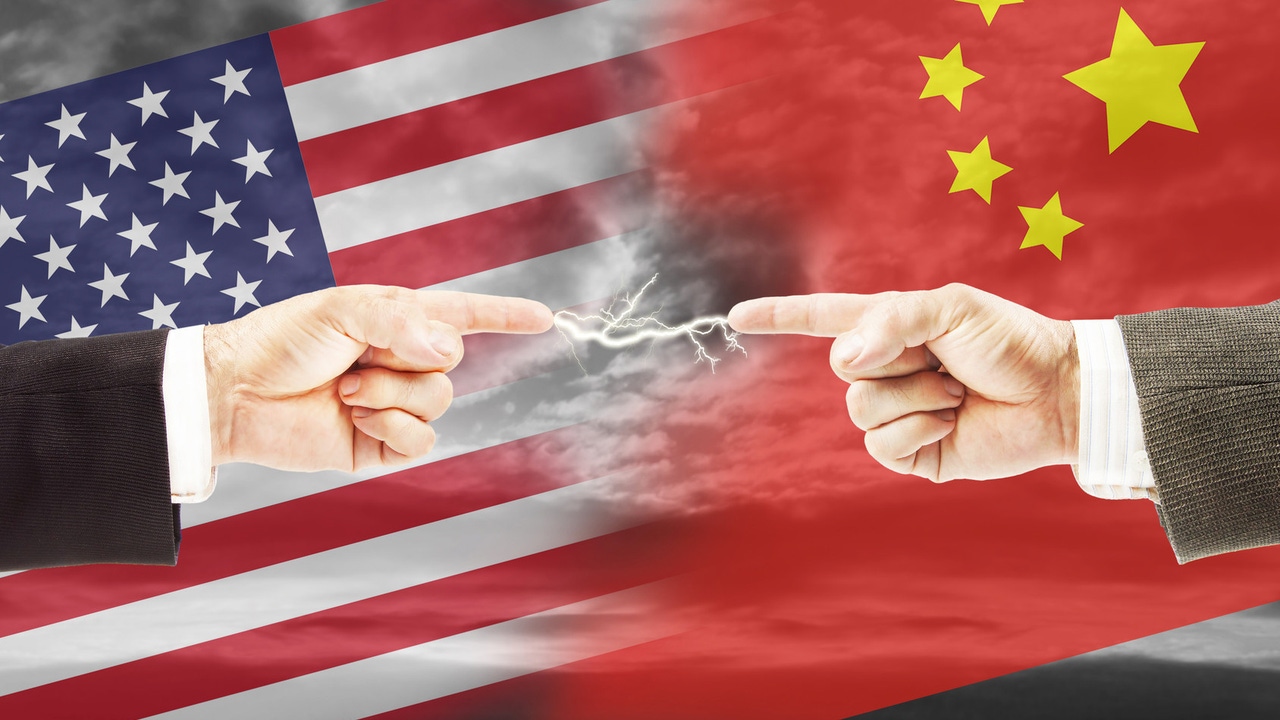The US continues to play whack-a-mole with Huawei sanctionsThe US continues to play whack-a-mole with Huawei sanctions
Huawei continues to find ways to circumvent US sanctions, which will inevitably lead to another round of them, a new set of countermeasures, and so on.
October 18, 2024

The US has a political body called the select committee on the CCP which ‘is committed to working on a bipartisan basis to build consensus on the threat posed by the Chinese Communist Party and develop a plan of action to defend the American people, our economy, and our values.’ It recently sent a letter to Commerce Secretary Gina Raimondo urging her to tackle what it calls Huawei’s clandestine chip network.
Huawei would presumably contest that description and point out that US sanctions have forced it to be creative in its attempts to get hold of the chips it needs to power its products. It might also question the justice of being treated as the main proxy in America’s tech trade war with China, through which the former seeks to perpetuate its status as global hegemon by suppressing the development of its main rival.
“Just as you have taken steps to prohibit Huawei from purchasing U.S. chips, it is similarly important and logical to restrict the flow of SME [semiconductor manufacturing equipment] to prevent Huawei from fabricating its own chips,” states the letter. “Restricting the flow of SME to Huawei’s clandestine network of semiconductor companies will send an important signal to both the PRC and Huawei that the United States will take appropriate action to prevent U.S. technology from enabling its problematic technology ambitions.”
There’s so much to unpick in that statement. What are "U.S. chips"? Why is it logical to restrict access to SME? What the hell is “problematic technology ambitions” supposed to mean? Huawei, it is alleged, has been collaborating with some Chinese chip firms that aren’t on the US entity list to get hold of restricted SME, with a view to building its own fabs and thus moving beyond the reach of US sanctions. That seems like a fairly logical course of action given the circumstances.
A major front of the tech war consists of the US not only preventing the sale of US-made chips to Huawei, but also any chips made by foreign companies that utilise US-made SME in the process. The main target of this action is Taiwan's TSMC, the world’s leading chip fab, which is one of the few that can make the most advanced ones. It uses kit made by US companies such as Applied Materials to do so and a recent report claims the US thinks TSMC is failing to do what it’s told.
But the most important SME company isn’t American, it’s Dutch. For the past year or so the US has expended significant political capital pressuring the Dutch government into forcing ASML not to sell its lithography kit to Chinese companies. It’s unclear how successful this pressure has been but ASML’s shares fell to their lowest level in 2024 after its recent quarterly earnings announcement, in which it downgraded its outlook.
“In Q3 2024, China made up 47% of company-wide revenues and this is now expected to fall to around 20% of revenues in 2025,” observed Radio Free Mobile in its coverage of the ASML numbers. Meanwhile the FT noted that “Being a national champion, or in ASML’s case a high-tech monopolist, is helpful. But it creates the risk that a company becomes a tool in a bigger diplomatic battle.”
“We applaud your work to reportedly address these issues in coordination with allies and partners,” concludes the letter to Raimondo, having detailed the extent of Huawei’s moustache-twirling deviousness. “However, we remain concerned the drawn-out negotiations have let Huawei continue to stockpile the SME necessary for reconstituting their supply chains.”
That concern is probably justified but it’s not clear what Raimondo can do to adequately address it. She will presumably add the named companies (Pengxinxu, SwaySure Technology, and Qingdao SiEn) to the entity list but there must surely be plenty of others able to take their place, ensuring this game of sanction whack-a-mole continues indefinitely.
It’s almost comical to see US lawmakers crying foul about Huawei breaking its rules when the legal and moral basis for this tech war is so questionable. For all the talk of security, America is seeking to distort global trade merely because it can. Not only does this risk collateral damage to companies such as ASML, it gives China all the incentive it needs to become technologically self-reliant.
This US approach was presumably one of the main reasons Huawei rival Nokia has just created a new senior role of Chief Geopolitical and Government Relations Officer and appointed former diplomat Mikko Hautala to that position.
“Mikko’s vast experience, excellent networks and deep understanding of international diplomacy will be hugely valuable to Nokia as geopolitical factors and government policies increasingly shape our operating environment,” said Nokia CEO Pekka Lundmark. "I’m excited to welcome Mikko to the Nokia team and believe his unique strategic perspective will help strengthen our positioning in our key markets."
Making chips is very difficult and capital-intensive (a single piece of SME can cost hundreds of millions of dollars) which is one of the reasons even the mighty Intel has been struggling. But with the resources the Chinese state has at its disposal, it wouldn’t be surprising to learn its domestic chip sector is developing rapidly. Sanctions can serve to obstruct that progress but China will presumably get there eventually, at which point the US will have to fundamentally rethink its geopolitical strategy.
About the Author
You May Also Like










.png?width=300&auto=webp&quality=80&disable=upscale)


_1.jpg?width=300&auto=webp&quality=80&disable=upscale)